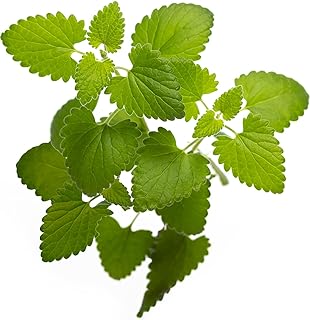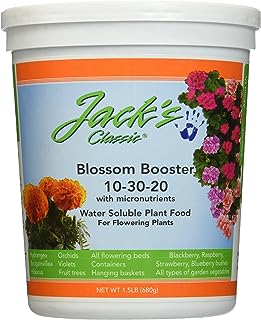5 important factors worth considering when looking for the best cucumber fertilizer organic
When it comes to choosing the right fertilizer for your organic cucumbers, it’s important to understand the key factors that will help you have a successful harvest. Selecting the best fertilizer goes beyond just following traditional farming practices, it also considers sustainability, effectiveness, and environmental awareness to promote responsible cultivation methods. As we explore the variety of organic fertilizers available, it’s essential to consider the nutrients they provide, how well they work with the soil, and their impact on the environment. Let’s talk about the important factors that can help gardeners choose the best organic fertilizer for their cucumbers.
See our guide to the best cucumber fertilizer organic.
Nitrogen content
When it comes to organic cucumber fertilizers, it’s important to focus on sustainability and soil health. Nitrogen is essential for plant growth, but using too much nitrogen-rich fertilizer can harm the environment by causing water pollution and soil degradation. Choosing organic fertilizers that release nitrogen slowly and in a balanced way is good for the cucumber plants and better for the environment. By picking organic options that improve soil fertility and increase microbial activity, gardeners can support the long-term health of their plants without harming the ecosystem.
In organic gardening, understanding how much nitrogen is in fertilizers is important for keeping a good balance between plant health and environmental well-being. By using organic fertilizers with moderate levels of nitrogen, gardeners can help their cucumber plants grow well while reducing the risk of nutrient runoff and soil problems. Taking a holistic approach to gardening that values organic, sustainable practices is not only good for the garden itself, but also benefits the larger ecosystem by promoting harmony and a thoughtful connection to nature.
Phosphorus content
When picking a fertilizer for organic cucumbers, it’s important to consider how much phosphorus it has. Phosphorus helps the plant grow well by supporting root growth, flower formation, and energy transfer. Organic fertilizers with the right balance of phosphorus can make cucumber plants stronger and better able to handle tough conditions, leading to healthy growth all season.
Choosing a fertilizer with lots of phosphorus not only helps roots grow strong, but also helps the plant take in nutrients effectively. This important nutrient is key for good photosynthesis and more fruit, resulting in a plentiful harvest of tasty cucumbers. By focusing on phosphorus in your fertilizer choice, you’re investing in the long-term health and productivity of your cucumber plants, creating a vibrant garden full of delicious homegrown cucumbers.
Potassium content
When you’re choosing fertilizers for your cucumbers, organic options can make a big difference in helping your plants grow better and in a more sustainable way. Potassium is an important nutrient for plants, including cucumbers, but it’s often overlooked. Choosing organic fertilizers that are high in potassium can help your cucumbers develop strong roots, resist diseases and stress, and produce more and better quality vegetables. By focusing on potassium in organic fertilizers, you’re not only helping your cucumbers grow, but also taking care of the environment by using natural and chemical-free methods.
Organic cucumber fertilizers with plenty of potassium provide a complete approach to feeding your plants, working well with nature and improving the soil for the long run. The benefits go beyond just getting a good harvest; they help to support the overall health of the environment and reduce the impact of farming practices. By recognizing how important potassium is for cucumber growth and choosing organic fertilizers that reflect this, you’re not just thinking about one season’s worth of crop. You’re creating a lasting foundation of healthy, nutrient-rich soil that will keep giving you plentiful cucumbers season after season.
Micronutrient availability
When choosing fertilizers for growing cucumbers organically, it’s important to consider the availability of micronutrients. While organic products are popular for being environmentally friendly, it’s essential to remember that micronutrients play a vital role in helping plants grow and produce well. Organic fertilizers have many advantages, but they may not always have enough micronutrients compared to synthetic ones. Cucumbers need nutrients like magnesium, manganese, and zinc to thrive, so it’s crucial to use a fertilizer that can provide these micronutrients effectively.
When looking for organic fertilizers for cucumbers, you need to be careful to make sure they contain enough micronutrients for healthy growth. While organic fertilizers can improve soil health and sustainability, they may not always supply all the essential micronutrients plants need. Some organic fertilizers, like compost and manure-based products, might not have the right balance of micronutrients for cucumbers, leading to nutrient deficiencies and slow growth. To get the best results from your cucumber plants, it’s important to find a fertilizer that meets both organic principles and the nutritional needs of cucumbers by ensuring there is enough micronutrient availability.
Organic certification
When you buy organic cucumber fertilizer, the certification process is important to make sure the product is genuine. Certification shows that the fertilizer meets strict standards set by governing bodies, like no synthetic chemicals, sustainable farming, and caring for the environment. Choosing certified organic cucumber fertilizer not only helps your crops grow better, but also helps the environment.
Picking certified organic cucumber fertilizer shows you support ethical farming practices. By buying products that are carefully certified, you help promote sustainable farming and protect the environment. The organic certification label means the fertilizer follows principles like biodiversity, soil health, and conserving natural resources. Essentially, choosing organic fertilizer for cucumbers is a way to create a better relationship between farming and nature, leading to a more sustainable and eco-friendly future.
Conclusion
In summary, using organic cucumber fertilizer helps plants grow better and supports sustainable farming. By using natural ingredients and eco-friendly methods, we can improve soil health, protect the environment, and grow healthy cucumbers without chemicals. Choosing organic fertilizers is more than just a decision; it’s a promise to create a more eco-friendly future and a stronger food system for future generations. Want more info on candles, check the best candles.


